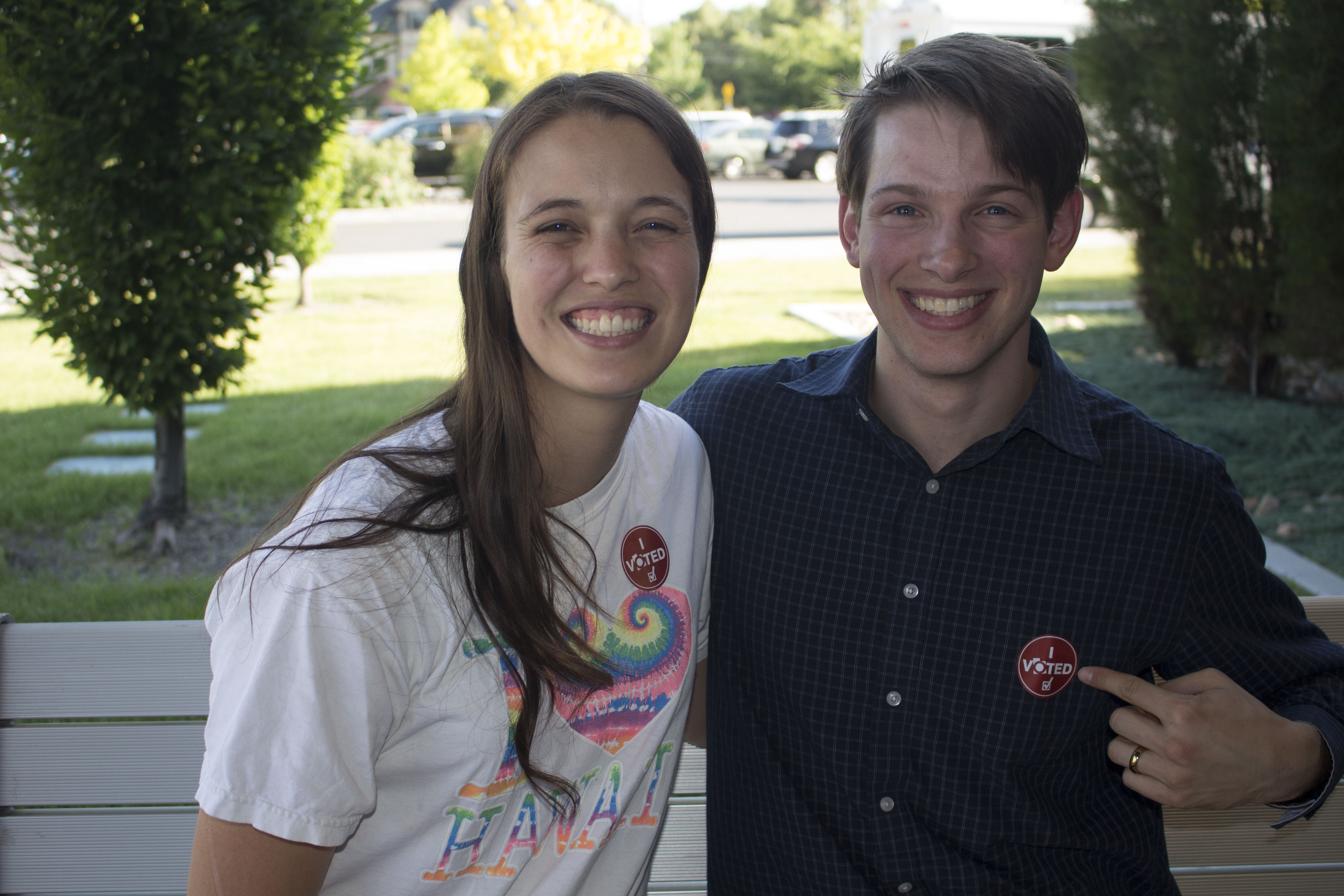Former Massachusetts Governor Mitt Romney secured the Republican Senate nomination that could restart his political career, but many BYU students did not vote in the election on June 26.
Romney swept the primary on June 26 against competitor Rep. Mike Kennedy with more than 70 percent of the vote. Romney won with as much as 76 percent of the vote in some Utah counties.
“Well, it looks like our team won the primary,” Romney said to a crowd of supporters after voting closed.
As the Republican nominee, Romney could replace retiree Senator Orrin Hatch, who will finish out his term to complete 42 years of service, the longest a Republican senator has ever remained in office.
The win is certainly something for Romney to celebrate, but his next task is getting Utah voters to the polls this fall.
According to the Utah Foundation, Utah has one of the lowest voter turnout rates in the nation. In 2014, less than 30 percent of Utah residents voted in the primary election. But because Utah tends to vote Republican, the primary often decides the election.
For many Utah voters, it is hard to see how their vote makes a difference when 71 percent of Utah’s election races were won by more than 30 percent in 2016.
Utah voters between the ages of 18–29 have some of the lowest voter turnout rates. This age group represents a majority of BYU students.

BYU students Kimberlee and Jacob Stern cast their votes Tuesday night. They said many other students don’t vote because of voter registration hassle.
The Sterns moved to Utah from Wisconsin and both had out of state licenses. However, after listening to a message from The Church of Jesus Christ of Latter-day Saints encouraging members to be politically engaged, the Sterns registered as Utah voters.
“We decided that it was time to get Utah licenses so we could vote,” Jacob said.
He said many BYU students don’t vote because it is difficult to get Utah residency.
“We had to wait for a long time in lines at the DMV,” Kimberlee said. “It takes time and effort.”
It’s an effort not many students take upon themselves. At BYU, about 12 percent of students are Utah natives and are eligible to vote in the state. Within this group, 19.9 percent of those aged 18–29 years old participated in the 2014 midterm election. According to these statistics, only 788 of the 33,000 potential voters attending BYU are likely to vote in midterm elections.
For the Sterns, it was worth the work to obtain Utah residency, and they look forward to voting in the midterm elections this coming fall.
“People should vote,” Jacob said. “That’s my strongest political view.”
To students who don’t engage in local politics, Utah voter Mary Webb, said, “Speak up. Be heard. This is your future more than mine.”
Webb emphasized that it is dangerous when people think one vote doesn’t matter. “We ended up with Trump because of primaries,” she said. “Be engaged. It matters.”
In November, Utahns will have the opportunity to vote again as Romney faces off against Democratic nominee Jenny Wilson.
Another voter, Jake Packer, agreed with Webb’s sentiments.
“The primary is more important than the general election,” he said. “If you want your party to be less extreme — vote in the primaries.”
Packer also said the more extreme supporters of parties are the ones who tend to vote in primaries, and they tend to elect the more extreme candidates. He said it is dangerous for states like Utah to have low voter turnout in the primaries because the Republican nominee is likely voted into office.
BYU students wishing to change their residency before the November general election can visit the Drivers License Division in person or online.




